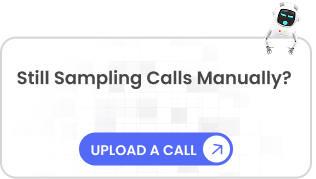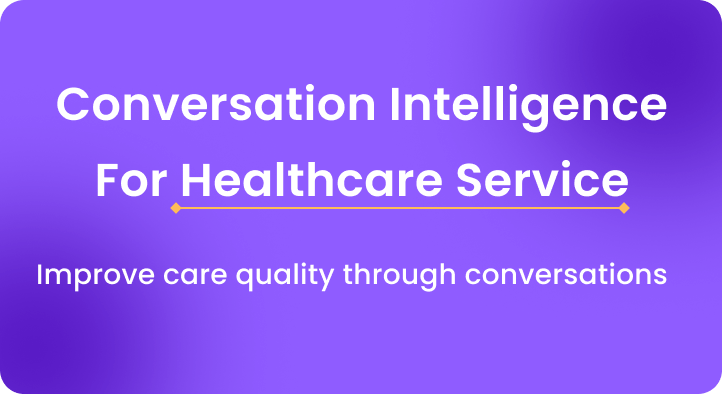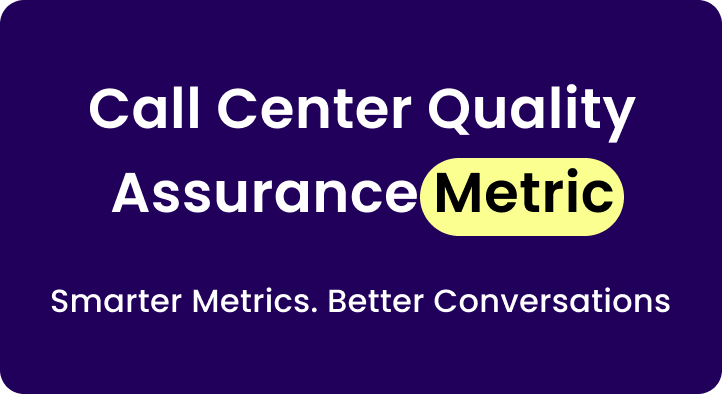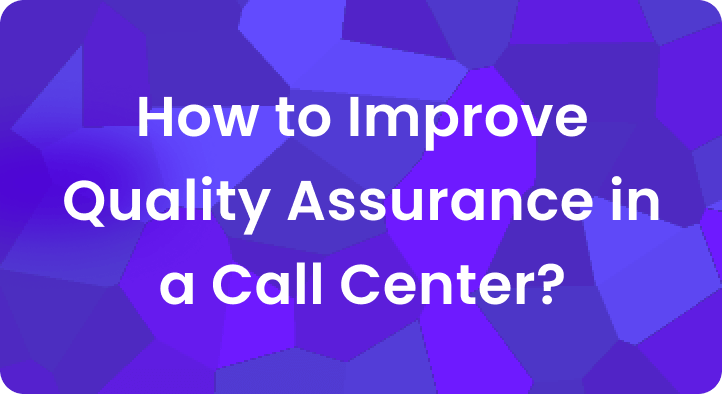Even in today’s digital world, customers prefer to talk to customer support on the phone rather than talk to agents on live chat.
Talking directly on the phone builds confidence and trust between the customer and agents.
Offering voice support becomes critical especially when urgency is there e.g.booking an appointment, reporting a wrong financial transaction, modifying a travel plan; and so on.
As a result, call centers today not only require well-trained agents but also the best call center phone system in place to offer a good customer experience.
Phone systems have also evolved from being just physical lines to becoming full-fledged VoIP solutions offering a myriad of features like call routing and logging, desktop interface, multi-channel communications, quality monitoring, IVR, barging; and so on.
Let’s look at some of the best phone systems used in call centers that can be a game-changer for your business operations.
How we analyze and select call center phone systems?
We have compiled the following list of top-notch call center phone systems through extensive research and evaluation. Our process involved actively weighing factors like user experience, G2 ratings and reviews, cost, and scalability.
We assessed the proficiency of these tools in call automation, sentiment analysis, transcriptions, quality assurance and provides performance metrics.
We have invested significant time and resources into compiling this list. Our goal is to give marketers helpful information so they can pick the best tools to make their businesses grow.
Table of Contents
A. What is a call center phone system?
A call center phone system is a type of communication system that is used by businesses and organizations to manage and route incoming and outgoing telephone calls.
These facilitate customer service and sales operations.
Phone systems typically include a variety of features such as automatic call distribution, call routing, voicemail, and caller ID, as well as the ability to track and monitor call volume and call times.
Advanced call center phone systems also include features such as call recording, call scripting, and real-time analytics.
Looking for expert advice on choosing the best telephony solution for your needs?
Reach out to our trusted partners at AL Performance for tailored guidance and support.
B. Top 15 leading call center phone systems
1. Aircall

With more than 7000+ companies using Aircall for their voice operations, it is one of the most reputed brands in the telephony industry today.
Particularly suited for the call center industry, Aircall supports both inbound and outbound processes for sales and support teams.
Aircall offers the best in class voice quality, coupled with an easy-to-use and configured interface that supports both small and large calling teams alike.
One can choose numbers from 100+ countries and can instantly scale their voice teams using Aircall.
Our customers with voice teams ranging anywhere between 3+ members to 100+ members have been using Aircall + Enthu.AI combination to analyze customer sentiments and monitor, evaluate, and coach their agents.
All these customers are super ecstatic about Aircall’s voice quality, ease of scaling, and customer support.
The fact that none of our customers has ever switched from Aircall to another VoIP provider talks a lot about the quality of the product and the support that Aircall offers.
- Pricing: Starting from USD 30 per agent per month
- Free plan available: No
- Free trial available: Yes, for 7 days
- Strengths: Voice quality, simplicity of application, cross-device functionality, integration stability
- Areas of improvement: App ergonomics, minor recurring bugs
- G2 Ratings: 4.3 out of 5, based on 500+customer reviews
IVR support, Call routing, skill-based routing, Call whispering, Live call monitoring, reporting and analytics Based on customer reviews on different online platforms, here are some of the many pros and cons. Pros Moiz K. It has a modern and up-to-date interface that is user-friendly. As a program, it is compact and easy to use making it a versatile choice for Businesses to use for everyday communication. Cons Shelly S. Other than a few connect and call drops, not many complaints from within our Organization. Kixie is a reliable sales engagement platform featuring automated calling and texting for HubSpot, Salesforce, Pipedrive, Zoho, and other leading CRMs. An intelligent queue informs agents when to make a call or send a text. Kixie connects agents to prospects naturally by name, detailed analytics show exactly how effectively calls are made, there’s never a lost connection, and everything runs on autopilot. Based on customer reviews on different online platforms, here are some of the many pros and cons. Pros Diogo P. Being able to send SMS, how quickly data from the CRM gets updated in the dialer and the clarity of the call recording. Cons Zack P. No notification if someone hangs up, glitches when using a powerlist(not ringing, not removing last call even after disposition CallHippo’s business phone system is one of the most comprehensive AI solutions for your business communication needs. With features like Power Dialer, automatic call distribution, smart switch, speech analysis, call barging, etc., it ensures effective conversation with customers. It provides support 24/7 and is accessible by desktop and mobile app. CallHippo integrates with Slack, Zapier, Pipedrive, Enthu.AI, Zendesk, Intercom, Groove, Freshdesk, Zoho, and 100+ such 3rd party software applications. Based on customer reviews on different online platforms, here are some of the many pros and cons. Pros Sai V. Call Hippo has good service most of the times. Their marketing team suggests new products and services available. Cons Anupama K. overall it does not have a lot of cons because its quite simple and perhaps a basic version of launch — the problem is exactly that. also it does not support a lot of lingos CloudTalk is a comprehensive call management solution featuring advanced call routing and IVR systems for seamless customer interactions. It integrates effortlessly with top CRMs like Salesforce, HubSpot, Zendesk, and others, ensuring a unified workflow. An intelligent call routing system directs calls to the most suitable agent based on predefined criteria, enhancing customer satisfaction. CloudTalk offers real-time analytics, providing a 360-degree view of customer interactions, allowing businesses to track performance and optimize strategies effectively. The platform supports global operations with local numbers in over 160 countries, ensuring high call quality and maintaining a local presence worldwide.2. Kixie

3. CallHippo

4. CloudTalk

Based on customer reviews on different online platforms, here are some of the many pros and cons.
5. Freshdesk Contact Center (earlier FreshCaller)

Freshdesk is a cloud-based call center phone system by FreshWorks. It is an easy-to-use business solution for any organization, irrespective of their size.
Freshdesk provides you with numerous features such as call queuing, call recording, call notes, service-level monitoring, smart escalations, IVRs, etc.
Freshdesk requires zero phone hardware and is easy to set up.
Also, with its user interface, most users will use it efficiently, once they get used to it.
It also comes with a mobile app that allows customer support and agents to handle calls on the go.
- Pricing: Starting from $0/agent/month
- Per min charges: View here
- Free plan available: Yes, for 21 days
- Strengths: Easy to use, customer support, mobile app
- Areas of improvement: Call quality, complex interface
- G2 Ratings: 4.1 out of 5, based on 100+ customer reviews
Based on customer reviews on different online platforms, here are some of the many pros and cons.
Pros
- Majority of users are satisfied with the platform’s analytics and reporting services.
- Customers appreciate features like call forwarding, clean user interface, which contribute to a seamless experience.
- Around 75% of customers highlighted the seamless integration between Freshcaller and FreshSales.
- 80% of users find it valuable for streamlining call handling and routing.
- Approximately 70% of customers express satisfaction for its flexibility in call management.
Shruti T.
It helps in managing a huge number of tickets minimising the problems faced while providing customer support. It is also easy to use with a user friendly interface.
Cons
- Majority of customers are experiencing glitches and technical problems.
- Many users expressed dissatisfaction with the response of the customer service team. Resolution of tickets is not so quick.
- Platform’s have limited features in terms of ticket management.
- Users experiencing unexpected charges or dissatisfaction with Platform’s pricing structure.
Anonymous User
It has limitations in Analytics. When exporting data, it only allows you to do it in PDF and not in Excel. Also, every time I select any parameter in my custom dashboard, it always asks to save the settings.
6. Grasshopper

Grasshopper is a virtual phone system for entrepreneurs and small businesses.
From their mobile-friendly dashboard and desktop app, you start a business location and begin receiving calls just minutes after creating your account!
You don’t need to buy expensive equipment or even have a dedicated home office.
Grasshopper allows you to manage all of your business calls from wherever you are, saving you time and money in the process.
- Pricing: Starting from $26/user/month
- Free plan available: Yes, 7 for days
- Strengths: User-friendly, quick to set up, integrations with most CRM tools, customer support
- Areas of improvement: Integration with SalesForce, call connectivity
- G2 Ratings: 4.1 out of 5, based on 600+ customer reviews
Based on customer reviews on different online platforms, here are some of the many pros and cons.
Pros
- 95% of customers highlighted Grasshopper’s easy setup and intuitive interface.
- Around 56% of users were satisfied with the voicemail feature making it easier to manage messages.
- The Platform offers cloud based services which do not require any hardware.
Anonymous User
It has made it super simple to make our clients aware of our schedule, and to customize information being provided to them
Cons
- 90% of customers have reported issues with the customer support team being unresponsive or not resolving their issues.
- 75% of users have technical issues, such as dropped calls, poor call quality, and call forwarding issues.
- Half of customers expressed dissatisfaction with lack of advanced features such as call recording, integration, and automated workflows.
- Customers feel that they are getting charged high compared to other platforms.
- 70% of customers have reported that the mobile app is unreliable, with frequent crashes and a lack of essential functionalities.
Robert K.
When switching numbers, there was a huge delay in when the forwarding would actually become active. Features to ring certain numbers at certain times was confusing and time intensive.
7. Go To Connect

GoToConnect is a provider of Unified Communications (UC) solutions that bring together a VoIP phone system with Advanced Collaborative technology, including web and audio conferencing as well as highly scalable Contact Center services.
With high-quality voice and IP telephony features at an affordable price, GoToConnect allows you to improve your business productivity and efficiency by staying connected through a number of communication channels.
It’s one of the most affordable solutions for international calls.
- Pricing: Starting from $14/user/month
- Free plan available: No
- Strengths: User-friendly, quick to set up, integrations with most CRM tools, customer support
- Areas of improvement: Still needs some fine-tuning
- G2 Ratings: 4.5 out of 5, based on 650+ customer reviews
Based on customer reviews on different online platforms, here are some of the many pros and cons.
8. Avaya

Avaya Inc. is an American-based multinational company that specializes in business communications solutions services, such as unified communications, contact center solutions, etc., for midsize to large companies.
It is a huge operation, with over 1 million active customers being served around the world.
Being a global leader in contact center services, Avaya provides many solutions such as Avaya Aura Contact Center and Avaya Aura Call Center Elite.
- Use cases supported: Workforce Management, Auto Dialer, Performance Analysis
- G2 Rating: 4.1 out of 5
- Free trial available: No
- Key features: Reporting, Screen Capture, Live Monitoring
- Pricing: Starts from $82 per agent per month
We gathered countless genuine user reviews about Avaya from sites such as G2 and Capterra. We have focused on the key aspects that are crucial for practical use. Here’s what we found:
Pros
- Around 80 % of users praised its user-friendly interface, making it an excellent choice for large call centers.
- 75% of users report positive experiences with the platform customer support, quick response times and effective solutions to issues.
- Some users are satisfied with its consolidated reporting system, which makes it easier to manage data and information.
- The cloud system provides excellent value, with competitive pricing compared to major cloud PBX providers, offering more features.
Marco A.
It has allowed me to administer in a much faster and more efficient way the attention to my clients, more than anything it has allowed me to monitor the calls that I receive in a much more practical and immediate way.
Cons
- Around 65% of users find the platform’s initial setup and configuration to be overly complex and time-consuming.
- Around 50% of users express frustration with the frequency of required updates and maintenance.
- Some users desire more flexibility in customizing the auto-answer feature.
- Users need improvements in authentication, bio-metrics, and IVR programming.
Ashiqur R.
The interface acted really weird at times like log me out of phones for no reason, calls would get dropped as well. This happened rarely though, so not a big deal. The interface would act really slow and take some time to open an option at times.
9. Nextiva

Nextiva Inc. empowers businesses with an easy-to-use call center solution.
The company boasts more than 100,000 customers.
Its call center solutions offer features, such as IVR, call queuing, automatic call distribution, call monitoring, and remote or mobile agents.
You can also optimize agent call flow, automate interactions, and provide the best experience to the caller.
- Pricing: Starting from $26/user/month
- Free plan available: Yes, for 7 days
- Strengths: Onboarding process, powerful phone functions, easy to use, call quality
- Areas of improvement: Tech support, porting process
- G2 Ratings: 4.3 out of 5, based on 450+ customer reviews
Based on customer reviews on different online platforms, here are some of the many pros and cons.
Pros
- Provides a low-cost opportunity for free communication within the United States and Canada.
- This comes as a plus for the users, since both the local and toll-free costs are cost-free.
- Businesses can have unlimited virtual meetings and collaborations.
- Nextiva offers unlimited Internet faxing, for easy document delivery.
Richard D.
Excellent voip platform, call quality is great, best pricing, intuitive user interface and customer support is prompt, friendly and helpful in getting started and quick to assist with queries. Exceptional service overall
Cons
- Approximately 65% of customers express dissatisfaction with the limited customization options available in Nextiva’s services.
- Nextiva experiences occasional call quality issues.
- Nextiva’s platform and features, leading to difficulties in onboarding new users and maximizing the full potential of the service.
- Nearly 62% of users express dissatisfaction with Nextiva’s customer support response time.
Steven C.
Bugs and glitches all the time. Apps stop working or random features in the apps stop working.
10. TalkDesk

TalkDesk is a call center solution that helps enterprises to provide the best experience for their customers while reducing customer support costs.
It uses IVR, automated call distribution, and skills-based routing that routes calls to agents who are best to handle them.
Besides workforce management and customer engagement, TalkDesk also provides industry-specific security features such as HIPAA compliance for healthcare-related organizations.
However, TalkDesk is more focused on the needs of an enterprise, and its feature set and pricing reflect the same.
- Pricing: Starting from $75/user/month
- Free plan available: No
- Strengths: Dashboards, call quality, customizable, onboarding process
- Areas of improvement: Reporting, connectivity, recurring technical issues
- G2 Ratings: 4.4 out of 5, based on 1500+ customer reviews
Based on customer reviews on different online platforms, here are some of the many pros and cons.
Pros
- 90% of users are satisfied with the platform’s functionality and capabilities.
- 78% of users satisfied Talkdesk makes handling calls more efficient when compared to other systems.
- Most of the users are satisfied with the telephony service as compared to other telephony systems.
- Talkdesk’s integration capabilities, comprehensive reporting features, and efficient workflow.
- 95% of users appreciate the platform’s customer service team for being efficient and responsive.
Gintarė R.
We also appreciate the wide range of statistics that Talkdesk provides. Being able to see real-time statistics helps us manage our workflow and allows agents to exercise self-control.
Cons
- About 75% of users expressed dissatisfaction impacted by connectivity problems, which included dropped calls and poor call quality.
- Almost 60% of customers complained that it has limited customised options to meet their unique demands.
- More than half of the users reported that it was difficult to integrate with other platforms.
- Majority of users complained that the platform reported having trouble while collecting and reporting data.
- More than 70% of users reported talkdesk’s reliability and dependability.
Adam C.
Talkdesk provides so much data in the way of default dashboards and reports along with the ability to create customer reporting, but it’s a little difficult to navigate.
11. Mitel

Trusted by over 70 million business users in over 100 countries, Mitel is definitely a force to reckon with in the telecommunication sector.
Mitel is a global telecommunication company with headquarters in Canada.
It started as a producer of TDM PBX systems and applications, and now focuses entirely on VoIP products.
Mitel offers a comprehensive range of phone systems that provide call center services, unified communications, and cloud communications.
Mitel offers MiVoice Business Call Service, which is an on-site communication solution.
With the help of this product, business communication becomes efficient through mobility, team collaboration, video conferencing, and exceptional customer experience delivery.
- Pricing: Starting from $20.99
- Free plan available: No
- Strengths: Simple to install, great mobile application, powerful admin features, user-friendly
- Areas of improvement: Not economical for small-sized businesses, technical support, call quality
- G2 Ratings: 3.8 out of 5, based on 200+ customer reviews
Based on customer reviews on different online platforms, here are some of the many pros and cons.
Pros
- The platform has flexibility to connect through multiple devices or channels.
- Approximately 65 % of users claimed that the platform’s cloud calling and voice mails access is very feasible.
- Around 85% of users examined that they can easily forward all the calls from one device to another.
Anonymous User
The solid Feature set of traditional PBX features plus advantages of Cloud flexibility. All of the Connect apps sync and work well together
Cons
- 90% of customers expressed dissatisfaction with Mitel’s customer service support team.
- 85% of the users mentioned frequent service outages and downtime.
- 70% of customers are not satisfied with the reliability of Mitel’s software and hardware. They reported issues such as poor call quality, frequent dropped calls.
Anonymous User
Connectivity issues. System not as promised. Marketing materials show one thing for the system, receive something totally different.
12. RingCentral

RingCentral is a cloud-based contact center service solution that provides a unified approach to handling business communications.
The software is a single, easy-to-use platform that works on any device and it can be used for voice, and video meetings, contact center, team messaging, and collaboration.
It easily integrates with business apps such as Microsoft, Google, Salesforce, etc.
Also, it provides you with numerous connectivity options.
RingCentral comes with features such as multi-channel communications, call quality management, granular call routing, IVR for business, etc.
- Pricing: Starting from $19.99/user/month
- Free plan available: Yes, for 14 days
- Strengths: Cost-effective, Integrations with most CRM tools, friendly admin web interface
- Areas of improvement: Complicated to set up, customer support, call quality
- G2 Ratings: 3.8 out of 5, based on 600+ customer reviews
Based on customer reviews on different online platforms, here are some of the many pros and cons.
Pros
- Over 85% of consumers are satisfied with the platform’s user-friendly interface and ease of use.
- Almost half of users platform’s versatility in managing various communication channels within a single interface.
- Approximately 88% of consumers expressed satisfaction with the quality of their calls.
- With the majority of customers satisfied with customer support professionals.
- Reporting and analytics tools of the platform’s were extremely customizable.
Eric M.
RingCentral Contact Centre is the ultimate solution for our business, accomodating our vast and evolving needs under a single, unified platform.
Cons
- 78% of consumers expressed dissatisfaction about poor call quality, including dropped calls and audio interruptions.
- Most of the users expressed dissatisfaction with the international coverage of phone numbers.
- The platform’s CRM integration with salesforce is not appropriate.
Jean B.
The initial setup does not include the text message feature and requires additional steps in order to use it.
13. Five9

Five9 is an all-in-one call center solution that transforms contact centers into customer engagement centers of excellence.
The software comes with features such as interactive voice response(IVR), real-time reporting, workforce management, quality monitoring, predictive dialing, CRM integrations, etc…
The solutions provided are useful to run effective inbound, outbound, and omnichannel contact centers.
Five9 gives agents the power and flexibility to work from anywhere.
Also, it is reliable, affordable, secure, compliant, and scalable.
- Pricing: Variable ($149 to $229)
- Free plan available: Not available
- Strengths: Easy to use, customer support, user interface, recording features
- Areas of improvement: Support for multiple languages, connection issues
- G2 Ratings: 3.9 out of 5
Based on customer reviews on different online platforms, here are some of the many pros and cons.
Pros
- 90% of customers express satisfaction with the platform’s overall performance.
- 78% of users acknowledge the platform’s capability to streamline call processes.
- Most of the users are satisfied with the automatically sets call reminders for the meetings.
- The Platform is easy to set-up and maintain.
Lisa D.
I love the fact that I can easily find the transfer numbers I need and that the hold function is easy to go between.
Cons
- 42% of users express dissatisfaction with the limited integration options.
- Most of the customers found customer support is not satisfactory.
- Around 42% of users face glitches and reconnecting issues while using the software.
- 38% of users are not satisfied with the limited customization options compared to other platform’s.
Brandon E.
I would say that the implementation was struggled at best. Our on-boarder, and this is representative of them not the company as a whole, did not seem to understand what are requirements what and what we were looking to achieve.
14. Dialpad

Dialpad’s VoIP call center solution enhances customer support and sales operations with cloud-based communication, offering clear voice quality, seamless call routing, and integration with essential tools like CRM systems.
Features like real-time transcription and AI-driven insights boost agent productivity and provide actionable data for optimizing customer engagement.
Designed for flexibility and scalability, Dialpad’s VoIP call center suits businesses of all sizes.
Easy to set up and manage without on-premises hardware, it reduces operational costs while ensuring exceptional customer service through its user-friendly interface and robust feature set.
- Pricing: Starting from $15/user/month
- Free plan available: Yes, for 14 days
- Strengths: Easy to use, fantastic quality of support
- Areas of improvement: Technical issues
- G2 Ratings: 4.4 out of 5, based on 1000+ customer reviews
Based on customer reviews on different online platforms, here are some of the many pros and cons.
Pros
- Cloud-Based Flexibility: Dialpad’s VoIP call center operates entirely in the cloud, eliminating the need for on-premises hardware and offering easy scalability for businesses of all sizes.
- Advanced Features: The platform includes features like real-time transcription, AI-driven insights, and seamless CRM integration, enhancing agent productivity and improving customer interactions.
- Ease of Use: With a user-friendly interface and straightforward setup, Dialpad makes it easy for teams to get started and manage their operations efficiently.
Anonymous User
Automatic transcription. Although I hope it will quickly be benefiting from some large language model voice to text. If transcripts became reliable enough to use in correspondence, that would probably be helpful.
Cons
- Reliance on Internet Connectivity: As a cloud-based solution, Dialpad’s performance is dependent on a stable internet connection, which may be a concern in areas with unreliable connectivity.
- Learning Curve for Advanced Features: While powerful, some of the more advanced features may require additional training for teams to fully utilize their potential.
Yvonne L.
The calls drop, the calls ring and the answer button will not answer. I do not believe that DP has a tech department to reach though.
15. Twilio Flex

Twilio Flex is a fully programmable cloud contact center platform that allows businesses to create, manage, and scale their own contact center operations.
It is built on top of Twilio’s communication infrastructure and it enables developers to customize every aspect of the customer engagement experience.
Twilio Flex can be used by businesses of all sizes, and it is available on a pay-as-you-go pricing model, which means that businesses only pay for the resources they use.
- Pricing: Starting from $1 per active user hour
- Free plan available: Yes, see here
- Strengths: Multichannel service platform
- Areas of improvement: Complex to use and expensive
- G2 Ratings: 4.4 out of 5, based on 1000+ customer reviews
Based on customer reviews on different online platforms, here are some of the many pros and cons.
Pros
- 95% of users claimed that the platform has a user friendly interface ,easy and quick functions to operate.
- Approximately 90% of users appreciate its powerful and versatile API, which supports a wide range of communication.
- Around 65% of reviewers appreciate the platform’s extensive global reach, which allows businesses to communicate with customers worldwide.
Anonymous User
Very good documentations to learn how to customize and really love the customizable features it has. And the pricing is also fair because have to pay only for what we use
Cons
- Approximately 45% of customers reported that Twilio is complex to set up and not easily accessible to every user.
- Most users have experienced issues with Twilio’s customer support and found it is very inconsistent.
- Some users claimed that they cannot integrate with QA management systems.
Bruna R.
The reports are a little confuse sometimes and its integration with WFM platforms is not the best.
16. SquareTak

Squaretalk contact center stands out among call center phone systems because it simplifies both customer interactions and agent management.
Since it’s entirely cloud-based, you can begin taking and making calls almost right away—no complicated hardware or lengthy installation. Its skill-based routing ensures that each caller lands with an agent who has the right language skills or the expertise they need.
On top of that, Axiom offers customizable IVR and ACD features, so you can tailor exactly how calls get routed.
- Pricing: The standard plan starts at $15/user/month
- Free plan available: No
- Free trial available: No
- Strengths: CRM-friendly integrations, skill-based routing, scalable architecture, strong customer support
- Areas of improvement: Automated client tracking could be improved, and trial options could be provided.
- G2 Ratings: 4.7 out of 5, based on 70 customer reviews.
Best for:
Pros
- Over 80% of reviewers applaud its smooth integration with CRMs and other tools
- High marks for skill-based routing and IVR ease of use
- Customer support is praised for being responsive and solution-oriented
- User-friendly interface with powerful reporting and analytics
Don d.
Both agents and supervisors can easily master the software, maximizing adoption. Top notch call connectivity and compliance with telecom regulations provide good reliability.
Cons
- Some advanced features can require a bit more training or customization
- There isn’t a trial option available
- A few users mention occasional glitches with integrations and client tracking that need prompt technical support
Bartlomiej Z.
Poor client tracking. If we do not report a specific problem or failure ourselves, the technical team does not detect it on its own.
C. Types of call center phone systems
There are several different types of telephony systems for call centers available, each designed to meet the specific needs of different types of businesses
1. On-premises call center phone systems
These are calling systems for call centers that are installed and operated on a business’s own premises.
They usually require a dedicated server, and IT staff to maintain it.
They offer more customization options and control over the system, but also require more upfront and ongoing investment.
2. Cloud-based call center phone systems
These are phone systems that are hosted in the cloud, and accessed over the internet.
They are operated and maintained by a third-party provider and require no hardware or IT staff to maintain.
They are more cost-effective and easy to set up, but they also offer less customization options and control over the system.
3. Hybrid Call Center Phone Systems
As the name suggests, these are a combination of both on-premises and cloud-based systems.
These allow businesses to keep some of the control and customization options of an on-premises system, while also taking advantage of the cost-effectiveness and ease of setup of a cloud-based system.
D. Importance of contact center phone software
Call center telephone systems are essential for businesses and organizations that rely on telephone communication to interact with customers, clients, or other external parties.
They play a crucial role in managing and improving customer service.
Here are some of the key importance of call center phone systems:
1. Improved customer service
Call center phone systems provide businesses with the ability to handle high volumes of calls in a timely and efficient manner.
This helps to improve the customer experience by reducing wait times and ensuring that calls are directed to the appropriate agent or representative.
2. Increased efficiency
Cloud-based phone systems can help to improve the efficiency of customer service operations by automating the call distribution process.
Which reduces the need for manual call routing and helps to ensure that calls are directed to the next available agent.
3. Advanced Analytics
Call center phone systems deliver organizations with extensive call data and statistics, such as call volume, wait times, call durations, and other critical performance indicators.
This data is utilized to improve the overall functioning of the call center and identify areas for improvement.
4. Call recording and scripting
Advanced call center phone systems allow businesses to record and store calls for quality assurance and training purposes.
Call scripting enables agents to follow predefined call scripts to ensure consistency and efficiency in their interactions with customers.
5. Cost-effective solution
Many cloud-based call center phone systems provide a cost-effective solution for managing high volumes of calls, as they can handle multiple calls simultaneously and automatically route calls to the next available agent.
This reduces labor costs and improves the overall efficiency of the call center.
E. How to choose a call center phone software?
Choosing a call center phone system can be a complex and time-consuming process, as there are many different options available, each with its own unique features and capabilities.
Here are some key considerations to take into account when choosing a call center phone system:
1. Business needs
The first step in choosing a call center phone system is to identify the specific needs of your business.
Consider factors such as the volume of calls you expect to handle, the types of calls you will receive, and the number of agents or representatives you will need to support.
2. Features
Consider the specific features you require, such as automatic call distribution, call routing, voicemail, and caller ID.
Also consider advanced features such as call recording, call scripting, and real-time analytics, which can be used to improve the efficiency and effectiveness of customer service operations.
3. Scalability of call center software
Choose a call center phone system that is easily scalable to accommodate future growth or changes in your business.
4. Integration
Consider how well the phone system can be integrated with other existing systems, speech analytics software, and applications, such as CRM, helpdesk, and conversation intelligence software.
5. Provider
Consider the reputation and experience of the provider, their customer support, and their technical expertise.
6. Cost
It is important to consider the cost of the call center phone system, including the initial cost, ongoing costs, and any additional costs for additional features or support.
7. Remote working
With the growth of technology and the present global scenario, many organizations are shifting to a remote working model; consider a call center phone system that allows your workers to work remotely.
8. Security
As the call center phone system will be handling sensitive customer data, it is important to ensure that the system has adequate security measures in place to protect this data.
F. 8 Standard call center software features
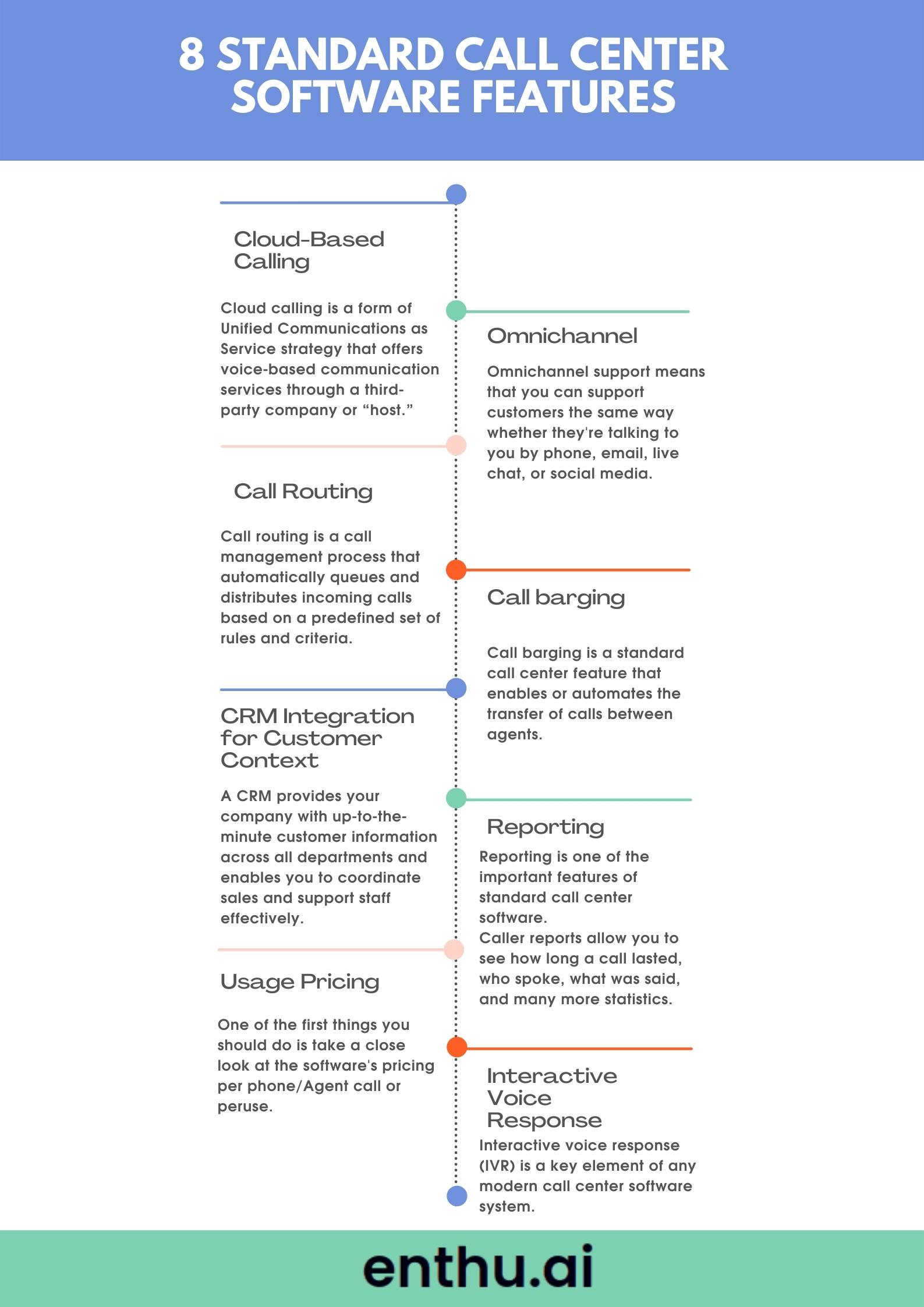
There are some standard call center software features you should look for when selecting the software.
These functions will save you time and keep your frustration level down.
As well as saving time, these features will also ensure that your agents respond professionally to calls.
A well-developed call center system will have many standard features, including:
1. Cloud-based calling
A lot of call centers today are using cloud-based management systems.
These allow users to complete various tasks, such as making outbound calls from their desks or tracking the time they spend on the phone and other activities.
Other people may want to record all important calls for future reference or streamline inbound calls with an IVR system.
This is made easier with a cloud-based solution since there’s no need to install extra hardware like VoIP boxes.
For all those who don’t understand what cloud-based calling is, it is a phone or telephone service that operates over the Internet using the same Voice over Internet Protocol (VoIP) technology.
A cloud-based service typically has its own server that your company pays to use instead of paying a third-party provider.
This can be much cheaper than leasing landlines and phones from a telecommunications provider.
2. Omnichannel
At the end of the day, any BPO wants to standardize its call center technology, software upselling & enterprise CRM to deal with single-core processes rather than multiple and doesn’t want to take the pain of updating them from time to time.
It also offers an integrated or single-user experience for its customers, which will provide a client migration experience that is smooth and seamless.
Omnichannel support means that you can support customers the same way whether they’re talking to you by phone, email, live chat, or social media.
If your call center software can’t integrate with other channels (like LiveChat, for example), then it’s not omnichannel.
3. Call routing
Routing calls can be complicated, and it’s easy to get caught up in the complexity and lose a sense of how it will actually work on the phone.
All businesses that rely on having clients via the phone will probably need call-routing software Features.
Lots of companies have used various types of automated call distribution and call management to handle their client calling requirements.
While choosing a call center solution, you need to take into account several factors such as the system’s ability to connect calls inbound, outbound, and among multiple call center users; ability to route a call based on the caller’s record, business rules, time of day or day of the week.
It’s one of the most important features of the call center phone system.
4. Call barging
Call barging is a standard call center feature that enables or automates the transfer of calls between agents.
The call could be transferred to the agent handling the most calls or the one with the least number of calls.
Call barging is an essential part of many software call-tracking solutions or rota-based call system architectures.
If your customer service software doesn’t provide call barging options, then read the next section in this article on what features you should look for in your call tracking solution.
5. CRM integration for customer context
There is no doubt about the importance of the CRM tool in the phone system.
It helps in creating a centralized database that can access all customer information and data.
A CRM provides your company with up-to-the-minute customer information across all departments and enables you to coordinate sales and support staff effectively.
With integrated CRM, your cms and voicemail system work together, delivering customer information to agents in real-time – it’s amazing how seamless this can make operations run.
Maintaining optimal CRM data hygiene is essential for ensuring the accuracy and reliability of the information available to your call center, facilitating better decision-making, and enhancing overall customer service efficiency.
6. Reporting
There are so many features available that are not really needed, and on the opposite end of the spectrum, features that could help you save significant money and time.
One of those features can be reporting-related. Reporting is one of the important features of standard call center software.
Caller reports allow you to see how long a call lasted, who spoke, what was said, and many more statistics.
You can easily export this data into a spreadsheet and use it for analysis.
All the other types of call reports can be used for training purposes.
Even though the report user interface is simple, all the necessary information is clearly displayed, and there are even call diagrams in some programs.
7. Usage pricing
One of the first things you should do is take a close look at the software’s pricing per Agent/phone call or peruse.
Depending on how your chosen software assigns your phone numbers, you might be charged more than expected for each minute on the phone.
Before committing to any new phone lines, confirm what’s included in the package and how much each call and minute will cost.
8. Interactive voice response
Interactive voice response (IVR) is a key element of any modern call center software system.
Interactive Voice Response services are there to aid users in completing their tasks, and they give you the possibility to smoothly run customer interaction within your company.
If you have a call center or a customer service department, you will definitely need an IVR service to boost your efficiency.
You won’t always be able to provide your customers with a perfect service right away since it will take time.
Still, modern technology can provide the best solutions for both supporting your customers and improving your business overall.
Conclusion
Choosing the right Call Center Phone System is certainly not a decision that should be made hastily.
Such a decision should be based on your needs and also on the quality of services that will be offered by the provider.
Now that you have all the information about the best call center phone systems out there in the market, you can make a better decision.
From the above reviews and comparison, you can also see that there are a lot more details that we discussed.
Still, if you have any questions feel free to drop them in the comment box.
FAQs
1. What are call center phone systems?
A Call Center Phone System is an advanced telecommunication system designed for efficiently managing large volumes of incoming and outgoing calls. This system uses VoIP (Voice over Internet Protocol), IVR (Interactive Voice Response), call routing, call recording, and analytics to boost customer interaction and provide streamlined service.
2. What are the types of call centers?
There are four main types of call centers: inbound, outbound, blended, and virtual. Inbound centres handle incoming calls, outbound centres make outgoing calls, blended centres handle both, and virtual centers rely on remote agents.
3. What is call center software?
Call center software refers to a variety of computer programs and technologies used to manage and optimise call centre operations. It typically includes features such as call routing, call tracking, call logging, and customer relationship management (CRM) capabilities.
4. What systems do call centers use?
Call centers use a variety of systems including phone systems, customer relationship management (CRM) software, and computer telephony integration (CTI) software to manage and route calls, track customer interactions, and store customer information.
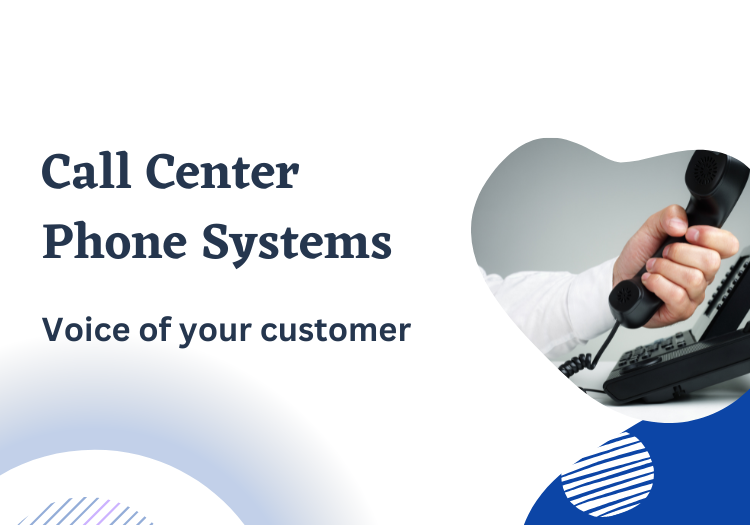





 On this page
On this page